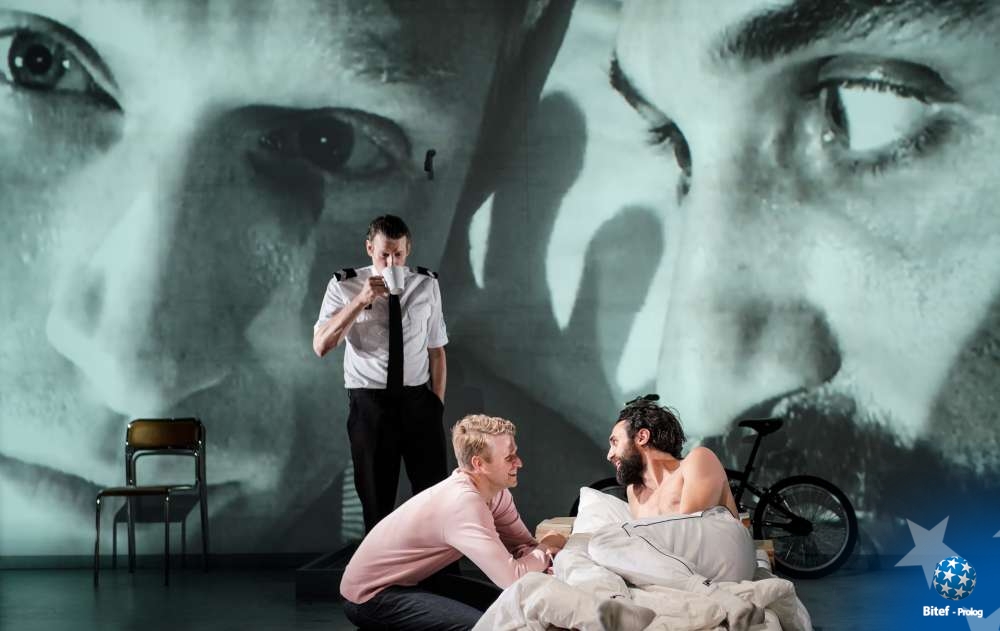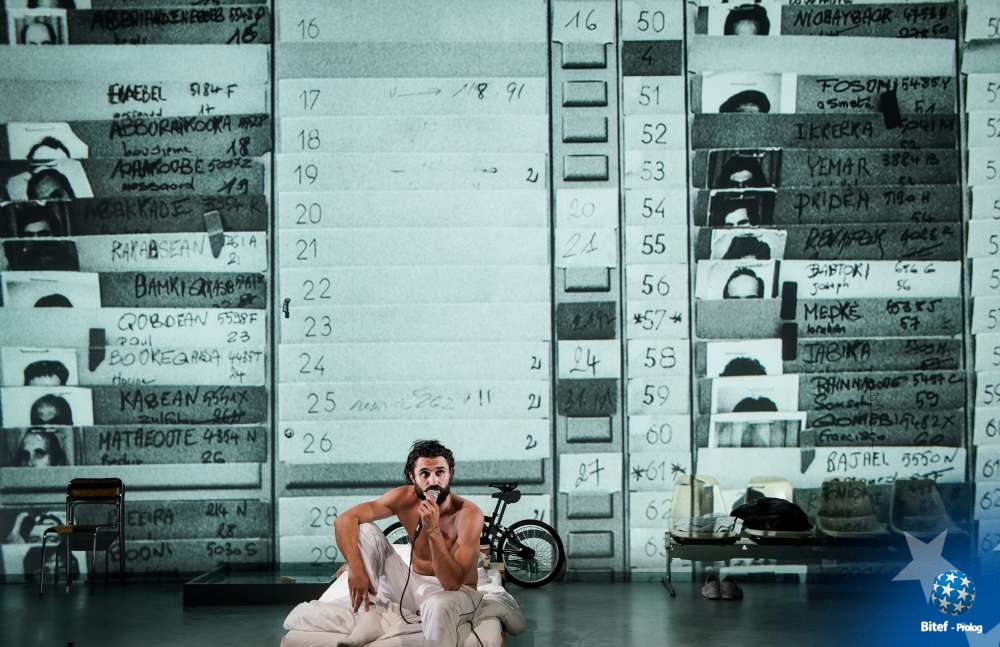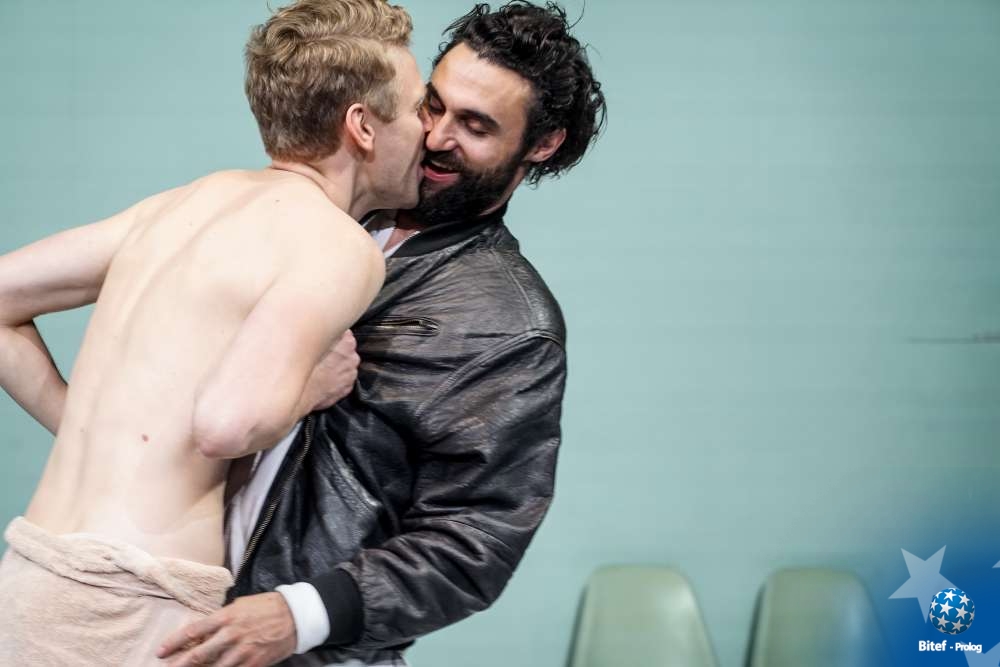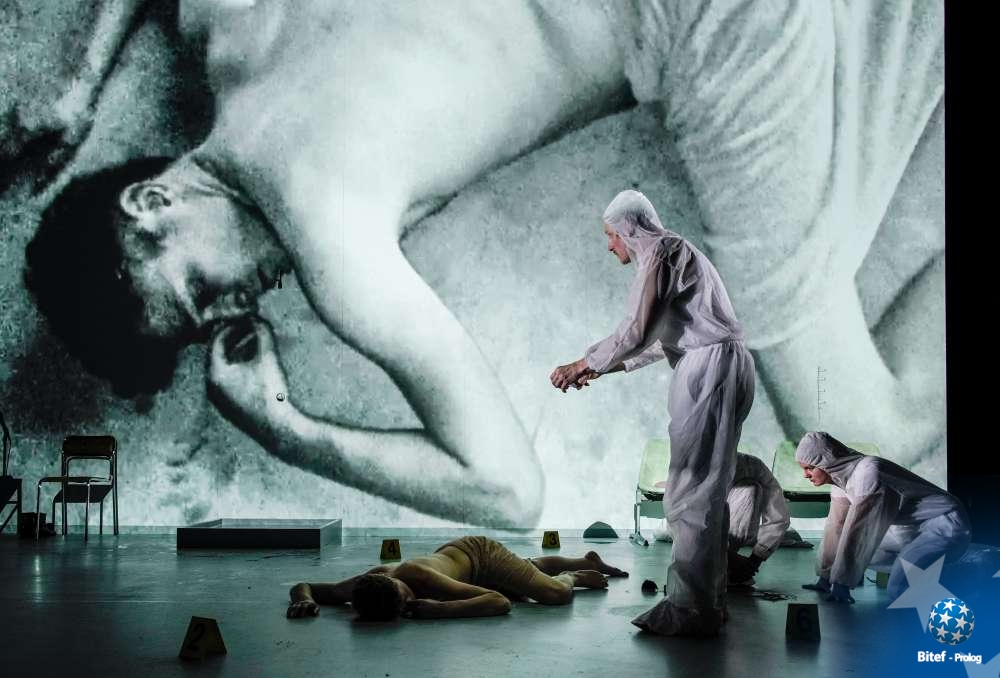About the production
In his autobiographical novel History of Violence, with his reconstruction of a traumatic night, French author Édouard Louis creates a work which is both a personal and penetrating social analysis of coming of age, desire, migration and racism and, in the diversity of voices reacting to the crime committed against him, makes audible the socially repressed forms of violence - the racism, homophobia and obscure power structures deeply rooted in society. Thomas Ostermeier has co-adapted the novel with Édouard Louis for its German-language theatre premiere.
Authors
ÉDOUARD LOUIS (1992) was born and raised in northern France, in a poor family supported by government welfare. The poverty, racism, and alcoholism which he dealt with in his family during his childhood would become the subject of his literary work. He is the first in his family to attend university, he finished EHESS (School for Advanced Studies in the Social Sciences).
In 2014 he published his first, autobiographical, novel The End of Eddy (En finir avec Eddy Bellegueule). Although the book generated debate and controversy over social perception of the working class, it was a bestseller in France and has been translated into more than 20 languages. In 2016, Louis published his second novel, History of Violence. In recounting the story of his rape and attempted murder on Christmas Eve of 2012, the autobiographical novel centres around the cyclical and self-perpetuating nature of violence in society. In an op-ed Why My Father Votes for Le Pen, published on the front page of the New York Times in 2017, he argues that the rise in popularity of nationalist and right-wing politicians among working class and poor voters in France was a result of changing priorities on the left. In 2018, he released his third novel, Who Killed My Father (Qui a tué mon père), in which he expands upon the theme.
The work of Édouard Louis is influenced by Pierre Bourdieu but also by William Faulkner, which is visible by the fact that he often places the popular vernacular at the heart of his writing.
THOMAS OSTERMEIER (1968) studied directing at the Ernst Busch Academy of Dramatic Arts in Berlin. From 1996 to 1999, he was the Artistic Director of the Baracke at the Deutsches Theater in Berlin, where he had a number of notable directions, among which are Knives in Hens by David Harrower (1997 awarded with Friedrich-Luft-Prize), Shopping and Fucking by Mark Ravenhill (1998), Disco Pigs by Enda Walsh (1998), and many others. In 1998, under his leadership, the Baracke was nominated “Theatre of the Year”. His last work for the Baracke, was Suzuki II by Alexej Schipenko (1999), after which he became the resident director and a member of the Artistic Direction of the Schaubühne, but kept directing for other theatres and festivals. Some of those productions are: at the Münchner Kammerspiele, The Marriage of Maria Braun by Rainer Werner Fassbinder (invited to the Theatertreffen 2008) and 2009 Susn by Herbert Achternbusch, at the Edinburgh Festival: The Girl on the Sofa by Jon Fosse, 2002 (awarded with the “Herald Angel Award”), at the Burgtheater in Vienna: The Master Builder by Henrik Ibsen, 2004, at Théâtre-Vidy, Lausanne The Seagull by Anton Tschechow, 2016, and at the Comédie-Française Paris Twelfth Night by Shakespeare 2018).
In 2004, Thomas Ostermeier was appointed associated artist at the Festival d’Avignon and in 2009 he was named Officier des Arts et des Lettres promoted to Commandeur in 2015. Between 2010 and 2018 he presided the German-French Council of Culture.
Thomas Ostermeier has directed more than 50 worldwide touring plays over the course of his career and in 2011 he received the Golden Lion of the Venice Biennale for his entire body of work.
He currently teaches directing at the Ernst Busch Academy and since 1999, he is Resident Director and member of the Artistic Direction of the Schaubühne Theater in Berlin.
At 37th Bitef 2003, his staging of Ibsen’s Nora, in the production of Schaubühne Theater, won the Politika Award.
History of Violence (2018) is his 37th production at the Schaubühne, Berlin.
From the reviews
But even this drastic approach does not provoke a Tarantino-like pose, but a sadly primed anger and helplessness outburst. If there is something like truthfulness and genuine engagement with the theatre the hardships of social difference, then you can find them in the staging of Thomas Ostermeier.
Peter Laudenbach, SZ
History of Violence focuses on the people and their existence within the confines determined by honour, ambition and irresistible desire. This is rarely seen in the theatre.
Rüdiger Schaper, TSP
Thomas Ostermeier splits the narrative into several layers as in the literary original. Flashback constantly switches between the sequences of the play and the comments, the distance is created by microphones, intensified by the pulsing drum beats of Thomas Witte.
Michaela Schabel, Schabel-Kultur-Blog




